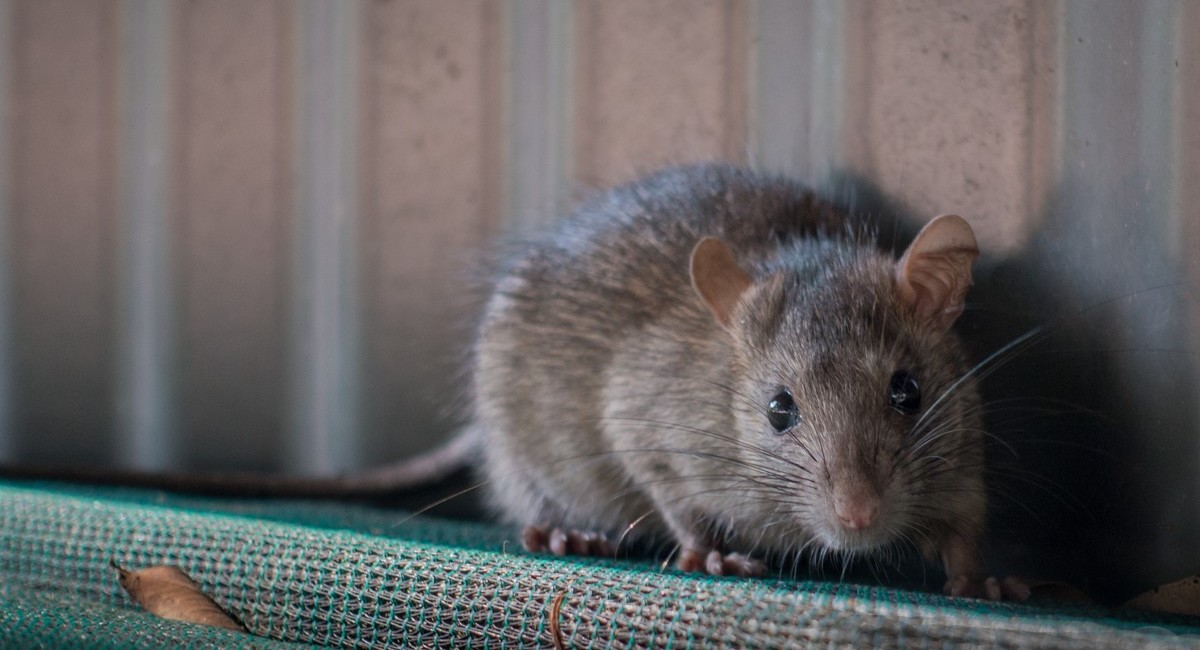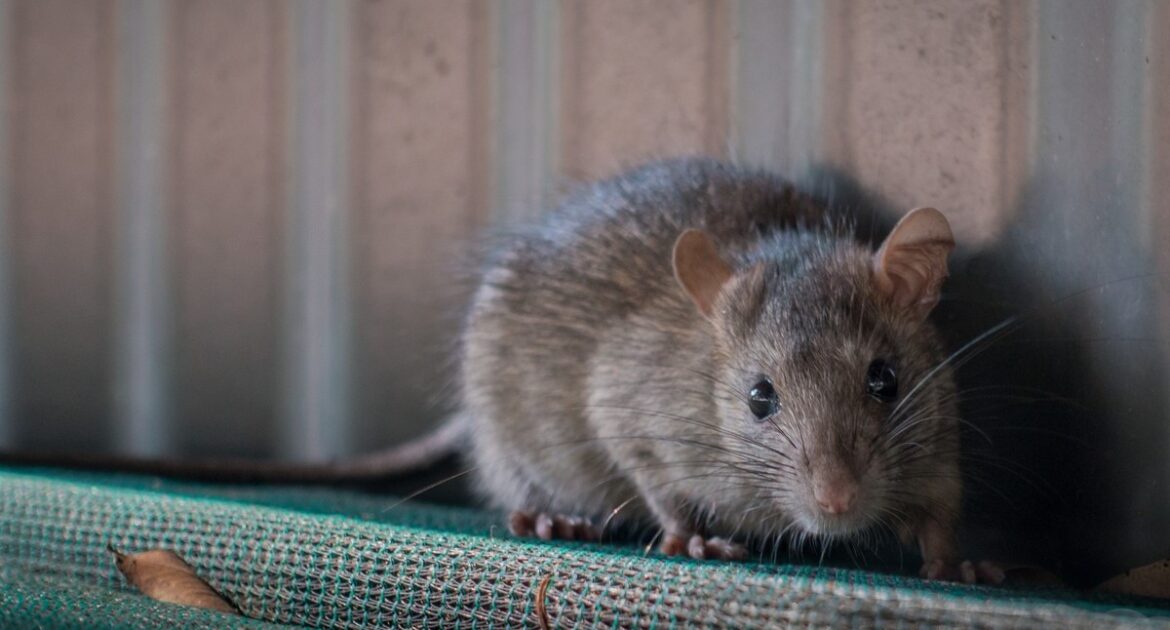When the temperatures start to dip during autumn in London, homes become a prime target for unwelcome visitors. Fall rodent prevention is crucial as rodents, like mice and rats, seek warmth, food, and shelter through the cooler months. If you’re looking to rodent-proof your home and keep rodents out in fall, we’ve got some practical advice to help you stay ahead of the problem.
Below, our experts in wildlife control in London share how you can protect your home, along with actionable tips to ensure no sneaky guests find a way in. We will start with securing entry points and touch on watching for warning signs.
Follow along below for all the information you need to keep your home and family safe from rodents this fall.
Fall Rodent Prevention Starts With Securing Entry Points
Rodents are resourceful and can squeeze their way through surprisingly small gaps. Mice can fit through holes as small as a dime, and rats need only a slightly larger opening. This makes sealing entry points one of the most critical steps in fall rodent prevention. Here’s how you can do it effectively:
- Inspect Your Home Thoroughly
Walk around your property and examine it from top to bottom. Focus on areas like the foundation, doors, windows, vents, and rooflines. Look for any holes, cracks, or weak points. These can be common entryways for rodents.
- Seal Gaps With the Right Materials
Use materials like steel wool, caulk, or metal sheeting to seal up small holes. For larger gaps or structural issues, consider more robust solutions like cement or heavy-duty hardware cloth.
- Install Door Sweeps and Weatherstripping
Ensure all your doors close tightly, with no gaps beneath them. Installing door sweeps and ensuring your windows are properly sealed can prevent animals from sneaking in.
- Check Ventilation Areas
Openings like dryer vents, attic vents, and chimney flues can serve as express routes for rodents. Cover these vents with mesh wire that’s sturdy enough to withstand attempts to chew through it.
Taking these steps will close off the obvious entry points that rodents use to invade your home, making it much harder for them to get inside in the first place.
Rodent-Proof Your Home With Proper Food and Waste Storage
Once inside your home, rodents will scavenge for food and water to survive. Reducing attractants is crucial if you want to rodent-proof your home.
- Store Food in Airtight Containers: Keep all dry pantry items, such as cereal, rice, pasta, and pet food, in airtight and durable plastic or glass containers. Rodents can chew through cardboard or thin plastic packaging but will struggle with sturdy, well-sealed containers.
- Keep Counters Clean: Make it a habit to wipe down kitchen counters and dining tables after meals. Crumbs, spills, and leftovers can all serve as a buffet for unwanted guests.
- Take Out the Trash Regularly: Garbage left inside can attract rodents. Use a bin with a tight-fitting lid, and consider storing outdoor trash bins as far away from your home as possible.
- Secure Compost Bins: If you compost food scraps, ensure it’s contained securely. Use a rodent-proof compost bin designed to keep them out while letting your composting efforts continue.
Keeping your home tidy and properly storing food and waste will take away one of the key reasons rodents invade houses in the first place.
Keep Rodents Out in Fall With Yard Maintenance
Your yard or garden can be an attractive space for rodents, drawing them closer to your home. A well-maintained outdoor space goes hand in hand with fall rodent prevention.
- Trim Overgrown Vegetation: Branches, shrubs, and vines growing close to your home can act as bridges. Mice and rats are skilled climbers and can use these to access your roof or windows. Keep at least a two-foot gap between vegetation and your home.
- Remove Woodpiles and Yard Debris: Piles of firewood, leaves, or construction debris can serve as hiding places for rodents. Keep woodpiles off the ground and stored at least 20 feet from your home.
- Cut Access to Outdoor Water Sources: Eliminate standing water after rainfalls and repair leaks in your outdoor plumbing. Reducing access to water will make your yard less enticing.
- Secure Bird Feeders: Bird feeders are a magnet for rodents. If you want to keep feeding birds during the fall, clean up any food that spills onto the ground and consider opting for husk-free options to minimize waste.
A well-maintained yard doesn’t just look great; it also keeps rodents from cozying up to your home.
Rodent-Proof Your Home by Staying Alert for Signs of Activity
Even with preventive measures, rodents can be persistent pests. Recognizing the early signs of their activity can save you time, money, and stress. Look for small, dark droppings in kitchens, pantries, or basements, as these are often the first indicators.
Fresh gnaw marks on food packaging, wood, or wires are another clear sign of rodent activity. Unusual sounds, like scratching, squeaking, or scampering noises—especially at night—may indicate rodents moving through walls or attics.
Nests made from shredded paper, insulation, or fabric hidden in corners or crevices are also a warning sign. Additionally, dusty surfaces may show tracks, and smudges can appear along baseboards or walls where rodents frequently travel.
Acting quickly when these signs are spotted is the best way to prevent a small issue from turning into a larger infestation.
Build a Routine for Long-Term Fall Rodent Prevention
While fall rodent prevention requires effort, it’s easier when you build protective habits and maintenance routines into your schedule. Here’s a simple step-by-step routine you can follow each season to keep rodents at bay:
- Seasonal Inspections: Every fall, inspect your home for new gaps or holes and seal them promptly.
- Deep Cleaning: Thoroughly clean storage spaces like basements, attics, and garages at least twice a year.
- Regular Trash Disposal: Set reminders for weekly trash removal to prevent potential rodent attractions.
- Yard Maintenance: Dedicate a weekend per season to trimming vegetation, clearing debris, and checking for ways to make your yard less rodent-friendly.
- Monitor Food Storage: Conduct pantry checks once a month to ensure food remains securely stored.
By making prevention a regular part of your routine, you can significantly reduce the likelihood of dealing with rodents in your home.
When to Call Professionals
While preventive measures are effective in minimizing rodent issues, there are situations where professional assistance is necessary. If you notice persistent signs of infestation, such as frequent rodent droppings, gnaw marks, or unusual noises in walls and ceilings, it is important to consult a pest control specialist.
Additionally, if you discover structural damage caused by rodents or if DIY methods have proved ineffective, seeking professional help ensures the problem is addressed thoroughly. Experts can identify hidden entry points, apply advanced treatments, and implement long-term solutions to safeguard your property.
Promptly reaching out to professionals can prevent the issue from escalating and provide peace of mind.
Protect Your Home This Fall With Help From Skedaddle
A rodent-free home is possible with the right strategy and vigilance. By sealing gaps, securing food, maintaining your outdoor space, and staying alert to early signs, you can effectively fall-proof your home.
Sometimes, though, professional help is needed. That’s where we come in at Skedaddle Humane Wildlife Control. For over 30 years, we’ve been helping households in London and beyond safeguard their homes with humane, long-lasting solutions.
Don’t wait to act. Contact us today and let us help you protect your home so you can enjoy a crisp, worry-free autumn.




